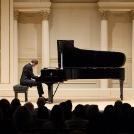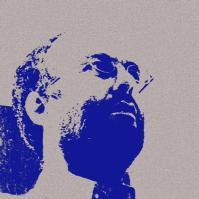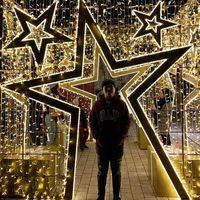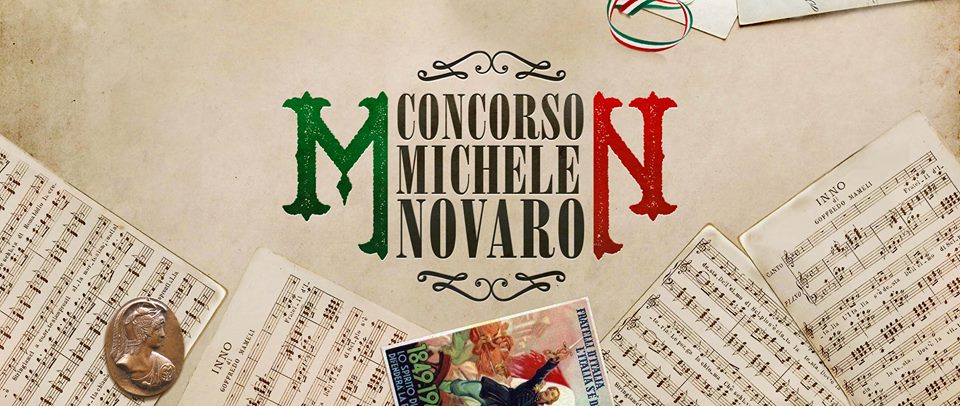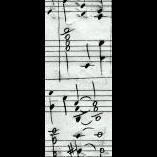Search the Community
Showing results for tags 'string orchestra'.
-
Welp, it's been a bit and I've come back with, would you look at that, a 35 minute one continuous movement piece? Never done that before, yup. But seriously, I've been working on this piece for like, 4 years? Obviously I didn't constantly work on it, between my spare time more likely. You can look at the score for more information about it. It's a very technical and dense piece, and I totally understand if you get tired in the middle of listening (I get tired too lmao). Anyways, I got nothing else to say other than to enjoy the piece! Feedbacks are always welcome.
-
Here it is! The submission for the Valentine's Day Event! To say that composing this piece was a hectic process is an understatement. Heck, I'm submitting this piece on the day (or night) of the deadline! I think I was going with the joyfulness aspect of romance, with of course a little bit of dark theme (just the minor version of the main theme really lol) mixed in there. This piece also contains a theme from a sketch that I have always wanted to explore. But yeah, dunno what else to say other than to enjoy the piece!!
-
-
Alright, after months of working, learning, and trying not to procrastinate too much, I'm freaking done with this project. This project took wayy longer than it should but gosh darn it it's hella worth it. It's literally my first time I've done something like this, and I thought it was okay. There were some parts that definitely could've been improved but I'm really proud of the score that I've made. About the scene: Two rival, young, and new deputies on the force, DUSK and BOYD, had found themselves in an one-on-one conversation after BOYD ran off to the top of a hill because DUSK had mocked his behavior of drinking and got sent off duty after the death of his horse, Bandit. The conversation ended in an ambiguous way after they each spoke of their feelings about each other. Credits in the video description. Server from WildRP. I've provided score, just the music, and some context to some of the dialogues as well. Lemme know what you think! -Ferrum
- 4 replies
-
- 1
-

-
- first time
- percussion
-
(and 3 more)
Tagged with:
-
Hi all! I'm excited to show a new piece I was commissioned to write by a local youth orchestra: Cantus. It's not very long (5'30'') and mostly consists of a single motif tucked between melodic material and developed into a theme that is tweaked for the entire piece. As indicated by the title, I attempted to juxtapose choral style on top of string writing, which I enjoyed a lot more than I expected I would. All constructive feedback is very much appreciated. As I composed, I struggled a bit with two main challenges. Even though I enjoyed mixing my love of strings and choir (I'm a violist and sing baritone), it was difficult to balance these two very different styles. Additionally, extending a single motif both rhythmically and melodically for a decent period was more stretching than I thought it would be. Regardless of that, although it's no Beethoven 5 first movement, I'm quite proud of how the theme and piece overall turned out in this respect. But maybe that's just me. I'd love feedback on how well I met these challenges. Stylistic commentary is also very appreciated. Additionally, I have just a couple of questions to prompt a bit of specific critique on a few things. Answer as many as you'd like! What was your favorite part of the piece? Why? What did you dislike most about the piece? How well was the motivic/thematic development executed? Did you feel that the piece ended too long after the climax? Do you have comments on compositional technique (i.e., harmony, orchestration, part-writing, etc.)? Did anything in the piece feel out of place? Any overall suggestions for improvement (in this piece and in my composing in general)? I've attached the full score below; feel free to follow along. Since this was a commissioned piece, I am fortunate to have a live recording! I was commissioned by the Preucil School String Orchestra, and Cantus was performed on their recent tour in Europe. I have several different recordings from different halls, but I'm attaching my favorite. This particular recording was made in the Czech Museum of Music in Prague (incidentally, the most live space I've ever been in). I really loved how the live acoustics of the hall interacted with this piece and even enjoyed hearing it more in this room than in the other, more acoustically flexible spaces Cantus was performed in. Recordings are never really able to capture the beauty of a space, but maybe you'll be able to hear a bit of the lingering character of the hall. I want to take just a moment to acknowledge the PSSO and its amazing conductor Carey Bostian for their fantastic interpretation and wonderful performances. It was an honor for me to work with them and a pleasure to watch as Cantus became not just an idea in my head but a real, living and breathing piece of music. I'd like to extend a huge thank you to them for being excellent musicians and amazing people. Finally, another huge thank you to you for taking the time to listen to my piece! I hope that you enjoy it and that it brings you peace.
- 6 replies
-
- string orchestra
- romantic style
-
(and 1 more)
Tagged with:
-
This is my "Elegy for String Orchestra Op. 334 'For the Victims of the Beirut Port Blast (August 4, 2020)'". The Beirut Port Blast was a great explosion - one of the largest non-nuclear explosions in history - that destroyed much of Beirut and killed more than 200 people, injured more than 6,000 people and left 300,000 people homeless, and of course left all other residents of Beirut shaken. I composed this "Elegy for String Orchestra" for all of those victims. May the memory of the dead be blessed, may the injured recover, may the homeless recover their homes, and may the shaken survivors and residents of Beirut find God's healing. As a resident of Beirut and a survivor of the horrible explosion, I sought via this rather sombre piece to kind of turn the page and emotionally move on from that tragic experience. Let us hope that justice will find the culprits and compensate all the victims' families.
-
Overture for String Orchestra Official - Flow 2.mp3 Overture for String Orchestra Official - Flow 3.mp3 01 - Full score - Overture for String Orchestra (1).pdf This is a work-in-progress for my youth chamber orchestra that I started in March 2020, and I envision it being between six and eight minutes long. The file titled "Flow 2" is the beginning of the work, joyful and energetic, and the one titled "Flow 3" is a heartfelt violin solo meant to come near the end. I have also attached the score. I have become stuck with this Overture, and am unsure what to do after that brief recap of the beginning. How can I tie the violin solo into the rest of the piece? And how can I heighten the drama? Any feedback and advice would be appreciated. Thanks, MissCello
- 2 replies
-
- string orchestra
- strings
-
(and 1 more)
Tagged with:
-
An Agnus Dei in Eb minor. The skill required for the solo soprano is really high as there are sustained high notes and chromatic melodic lines, main harmony is suggested by the string orchestra. Hope you all enjoy this piece 🙂
-
Hello everybody! This is my latest piece, which was inspired by composers such as Arvo Pärt, Francis Poulenc and Samuel Barber. It was also a study into the use of artificial harmonics and textures. It's also important to note that the harmonics won't sound that clear in real life. However, I structured the piece so that the first parts of the music won't require clarity of the individual lines. The last third of the piece has almost no harmonics so that It becomes more "meaty". Anyways, I hope you all enjoy it, and as always, feedback is greatly appreciated!
-
A peaceful piece for string orchestra. With long sustained chords and interesting harmonies. Hope you all enjoy it 🙂
-
This is probably one of my favorite works that I’ve composed. It has some fun rhythms within the 5/4 meter, which plays into the folk like nature of the piece. I’m curious as to what story you guys come up with to go along with this work-I always like to have a storyline or plot to go with every compositions I write. HAPPY LISTENING!
-
What do you think of my composition?
- 2 replies
-
- strings
- string orchestra
-
(and 2 more)
Tagged with:
-
Hello everyone. I'm new to this forum but i'm hoping i can get some much needed help. I recently started working on my very first musical composition and it has multiple sections. The "B" section is a Waltz that preferably needs to be in E Minor. I've never written a Waltz or Classical music in general. so it would be much appreciated if i could have some ideas on how to take it. Thanks, Weston
-
These are my "Two Sententiae for String Orchestra, Op. 309". It is rarely that I compose for orchestra. The last composition, a "Concertino for Classical Guitar and String Orchestra", was composed back in late 2015. I had shared it here almost two years ago. Here is its link: https://www.youngcomposers.com/t33864/concertino-for-classical-guitar-and-string-orchestra/
- 6 replies
-
- sententia
- sententiae
-
(and 3 more)
Tagged with:
-
This is my first string orchestra piece that I have attempted (also for double string orchestra), and I finished it after two weeks. This can be played by one or two orchestras, and I might have this piece played by my school's string orchestra. Almost the entire piece is played in legato. My favorite part of this entire piece is Section I. Here's a sentence of what I feel from this piece: A flow of swirls and magic fill me with warmth, love, relaxation, passion, and a desire to gaze at the grand night sky with its stars... I used works from certain composers like Ralph Vaughan Williams, Holst, Ravel, and a few others as examples to learn. Because I'm relatively new to composing for orchestra, I'd like some feedback on this piece.
-
Hello everyone, I would like to introduce you the Second Edition of the International Composition Competition “Michele Novaro”, organized by Associazione Mendelssohn, in collaboration with Maggio Musicale Fiorentino. The Chairman of Jury will be Krystof Penderecki. The Competition is open to composers of all nationalities, who on 20 October 2017 are still under the age of 35. Candidates should submit to the jury a composition for string orchestra, with the possible addition of 1 flute (or piccolo), 1 oboe, 1 clarinet (in B flat or in A), 1 trumpet, percussions (one player). The composition should last between 7 and 10 minutes and should focus on the theme of the “Italian Artistic and Cultural Heritage”, which lies in article 9 of the Italian Constitution. The first prize includes 5000 euros. The deadline for the submission of manuscripts is 20 October 2017. Each participant may only present one composition. The final stage will take place in Florence on Nov. 27, 2017, at Teatro Goldoni. The Chamber Orchestra of Maggio Fiorentino will perform the three finalist compositions. For further details, please visit our website www.concorsonovaro.it http://www.concorsonovaro.it/index_en.php I will be very grateful if you will share this information with your contacts.. Thank you for your kind consideration. Competition rules Article 1 - Object The Associazione Mendelssohn, with the support of Toscana Energia, hereby announces the Second Edition of the «Michele Novaro» International Composition Competition. Michele Novaro (1818-1885) was the composer who, at the age of 29, wrote the music for the Italian National Anthem on the lyrics by Mameli. The competition aims to stimulate composers to create music able to reflect on Italian identity and culture. Article 2 - Admission requirements The Competition is open to composers of all nationalities, who on 20 October 2017 are still under the age of 35. Candidates should submit to the jury a composition for chamber orchestra, lasting between 7 and 10 minutes, which is inspired by the values and themes of the Italian Constitution. In this edition, composers should focus on the theme of the “Italian Artistic and Cultural Heritage”, which lies in article 9 of the Italian Constitution. The work should involve a string orchestra, with the possible addition of 1 flute (or piccolo), 1 oboe, 1 clarinet (in B flat or in A), 1 trumpet, percussions (one player). The composition must absolutely be unpublished and unperformed until the end of the competition. Candidates who have studied under one or more members of the jury, even occasionally or in a master class, will not be admitted. Article 3 - Submission date The deadline for the submission of manuscripts is 20 October 2017. Each participant may only present one composition. Article 4 – Registration and submission of scores. Registration should be made through the site www.concorsonovaro.it All candidates must register on the site and fill in the online application form, following the instructions provided. The following documents must be uploaded: - scan of identity card or document giving proof of age and nationality; - two recent photos; - receipt of the payment of the registration fee of 80 Euros, via Paypal or bank transfer (Iban: IT47M 03069 09473 100000000316, BIC/Swift: BCITITMM) - completed and signed form (downloadable from the site), containing the following information: home address and phone numbers for any necessary communications, and an email address, curriculum vitae in Italian and English, self-certification testifying to the originality of the composition, which must not have been published, performed or recorded, the candidate's declaration that he/she has not studied under any of the members of the jury, and authorization for the performance, publication, recording and broadcasting of the work. Scores should be submitted through the site anonymously, both in PDF format, and in Sibelius or Finale format, following the instructions and the upload link given in the email received during the registration process. The personal details of the composers of the three compositions selected for the final will be made known to the jury and public only when the results of the elimination phase of the competition have been announced. Composers who do not reach the final phase will remain anonymous also after the end of the competition. Article 5 – Phases of the competition The competition will consist of three phases: the elimination phase, the semifinal and the final. After the elimination phase, a maximum of 25 scores will be selected by the preliminary jury for the following phases, by October 31, 2017. In the semifinal phase, which will conclude by 15 November 2017, the jury will select up to a maximum of 3 compositions which will pass into the final phase. The title of the works chosen for the final will be published on the site of the Competition on 16 November 2017 and the three finalist composers will be informed by email. The final phase of the competition will consist of an evening event open to the public to be held in Florence on 27 November 2017 at Teatro Goldoni, within the concert season of Maggio Musicale Fiorentino. In the final concert, I Cameristi del Maggio Musicale Fiorentino, conducted by Domenico Pierini will publicly perform the selected works. After the performances the Jury, present in the concert hall, will meet and decide on the winner. The winning composition will be announced at the end of the evening. Article 6 – Jury and voting procedure The preliminary jury for the elimination phase will be composed of three members: composer Cristian Carrara, musicologist Chiara Renino (Casa Musicale Sonzogno) and pianist Roberto Prosseda. The jury for the semifinal phase will be composed by five members: Krystof Penderecki, President, Cristian Carrara, Richard Danielpour, Giovanni Sollima, Pierangelo Conte (artistic director of Maggio Musicale Fiorentino). The jury will examine the submitted compositions independently and will indicate their choice of three scores electronically, giving them marks from 1 to 5. The three scores that obtain the highest total of marks will pass into the final phase. If there is a tie for third place, further votes will be cast (choosing between “yes” and “no”) exclusively for those compositions. Should there be a further tie, priority will be given to the vote of the president of the jury. In the final phase, the jury will be the same as in the semifinal phase, with the addition of Piero Ostali (director of Casa Musicale Sonzogno) and Lorenzo Becattini, Italian Member of Parliament, who conceived and promoted the Competition, which has already been presented to the Lower Chamber of Parliament. After the performance of the three pieces, the jury will meet behind closed doors. Each member will fill in a paper form stating their order of preference of the three works, giving number 1 to the piece to be assigned first place, number 2 to second place, and 3 to third. At the end of the voting, the marks assigned by each member will be read and the total for each composition will be calculated. The composition with the lowest total will be awarded the Novaro prize. In the case of a tie, preference will be given to the work that obtained most number ones. Should there be a further tie, priority will be given to the vote of the president of the jury. After the competition, and by the end of December 2017, the marks given by the jury will be published on the site of the competition, together with the title of the works submitted (without giving the name of the composers whose scores did not reach the final stage). Article 7 – Prizes and expenses refund The winner of the competition will be awarded the “Novaro” Prize, which includes: - Publication of the work by the publishing house Sonzogno. - Commission of a chamber music work by Operabarga Festival, with the Premiere performance at Barga in summer 2018. - A money prize of 5.000 Euros (gross of withholding taxes). In addition, three special prizes will be awarded: - the Maggio Musicale Fiorentino discretional award: the artistic direction of Maggio Musicale Fiorentino will have the possibility to commission one of the three finalist composers a symphonic work, to be performed in the symphonic season of Maggio Musicale Fiorentino, - the audience prize, awarded by the public attending the final evening, who will vote using a form handed out in the concert hall. It consists of 500 Euros (gross of withholding taxes). - the critics’ prize, awarded by the critics’ jury, composed of three members: Sandro Cappelletto, Gianluigi Mattietti and Gregorio Moppi. The prize consists of 500 Euros (gross of withholding taxes). The two finalists other than the winner of the Novaro Prize will receive a refund of expenses amounting to 500 Euros for attending the final event. The Novaro prize cannot be split and the possibility of no prize being awarded is not foreseen. The decision of the jury is irrevocable. Article 8 - Legal terms Application to participate in the Competition implies the acceptance of the above-stated rules. In the case of contestations, the Italian version of the announcement is legally binding. All disputes are subject to the exclusive jurisdiction of the court of Milan.
-
- maggio musicale fiorentino
- firenze
-
(and 1 more)
Tagged with:
-
The_Fox_and_the_Rabbit_Score.pdf The_Fox_and_the_Rabbit_Story_and_Notes.pdf musicstory.mp3 Hey guys, been a while since I posted a piece here (have some stuff in the works but this is the first thing I've finished recently). This is my submission to the Winter 2017 programmatic music contest. In this case I did something a little different, I wrote a piece for orchestra and narrator (like Peter and the Wolf, which I was heavily inspired by). I do think there are some places where I could refine / expand upon (particularly have the finale in mind), but it is nearing the deadline and I am at the point where I just really want to put it out there to share and get some feedback. This is also probably the fastest I've completed a piece in it's entirety - when I entered the contest on the 5th of this month I only had the first two movements and a rough outline of the story. The narration in the audio is also done by me, hopefully it was a serviceable job. I tried to compose almost exclusively at the piano this time and also tried to use some more interesting keys. Hope you enjoy! (Also, the title isn't final - if you have a recommendation for a better one please let me know!) Total Length: ~14 minutes Length (only music): ~9 minutes
- 3 replies
-
- narrator
- string orchestra
-
(and 1 more)
Tagged with:
-
This is a short composition for string orchestra. Here I was attempting to be less theme-based and more stylistically like contemporary classical music, focusing more on rhythm and texture. Hope you enjoy.
-
A short piece for string ensemble.
-
I composed this Concertino for Classical Guitar and String Orchestra (in three movements), one of my more ambitious compositions, around 8 months ago. I had intended it for performance by a guitarist friend who sometimes performs with orchestras. However, that has not materialized yet. So here it is for your enjoyment. It is the first concertino I have ever written.
- 2 replies
-
- classical guitar
- concertino
-
(and 1 more)
Tagged with:


